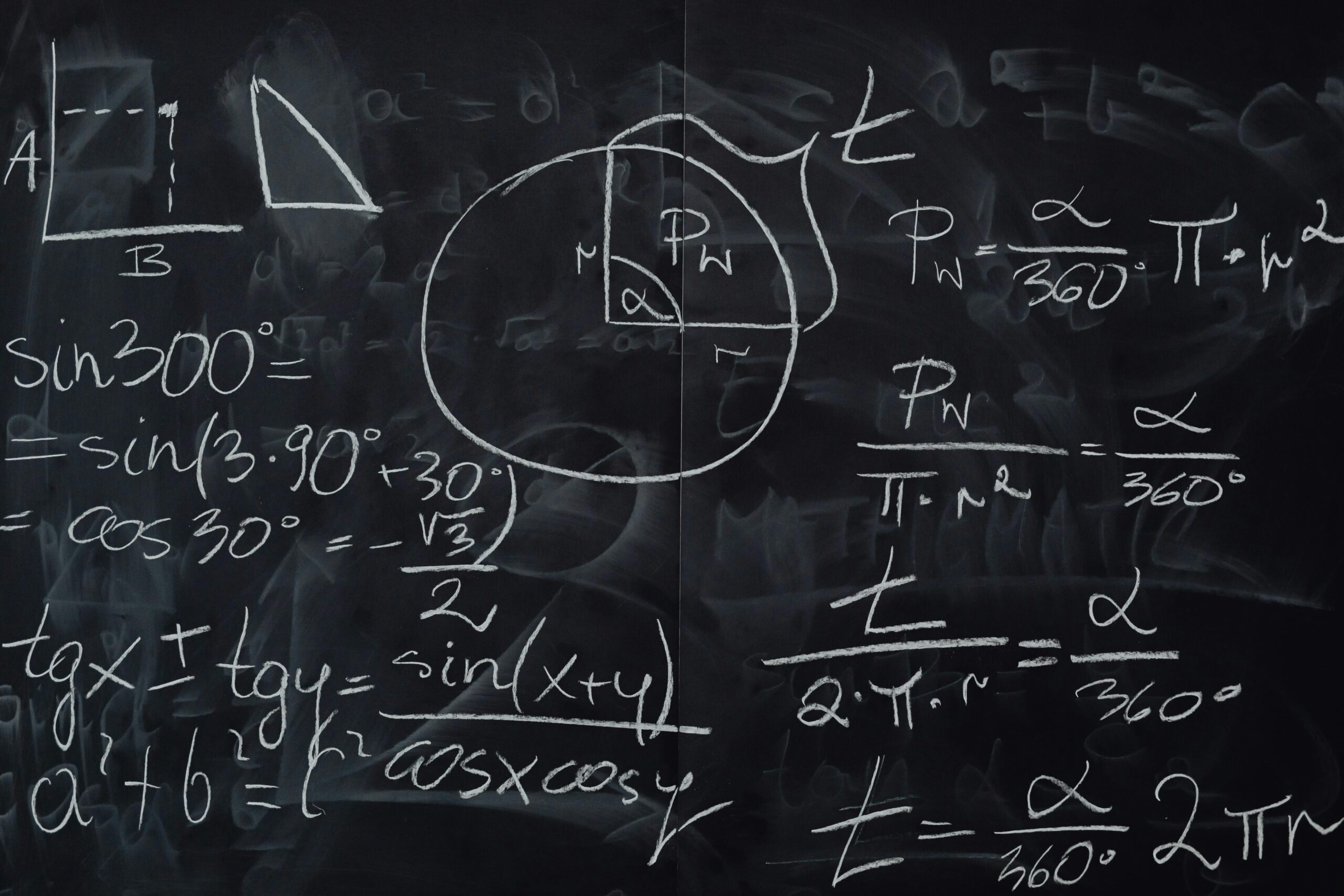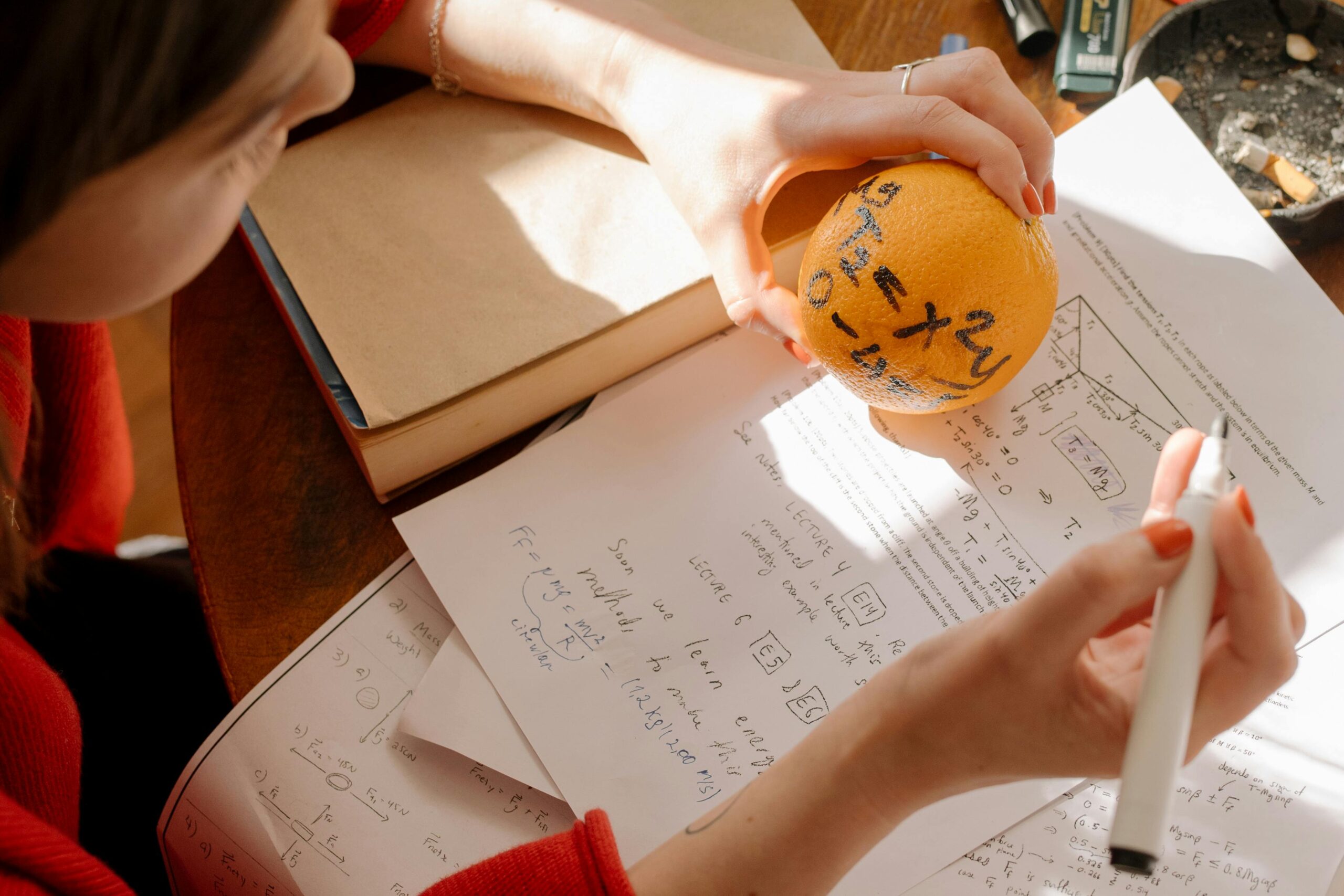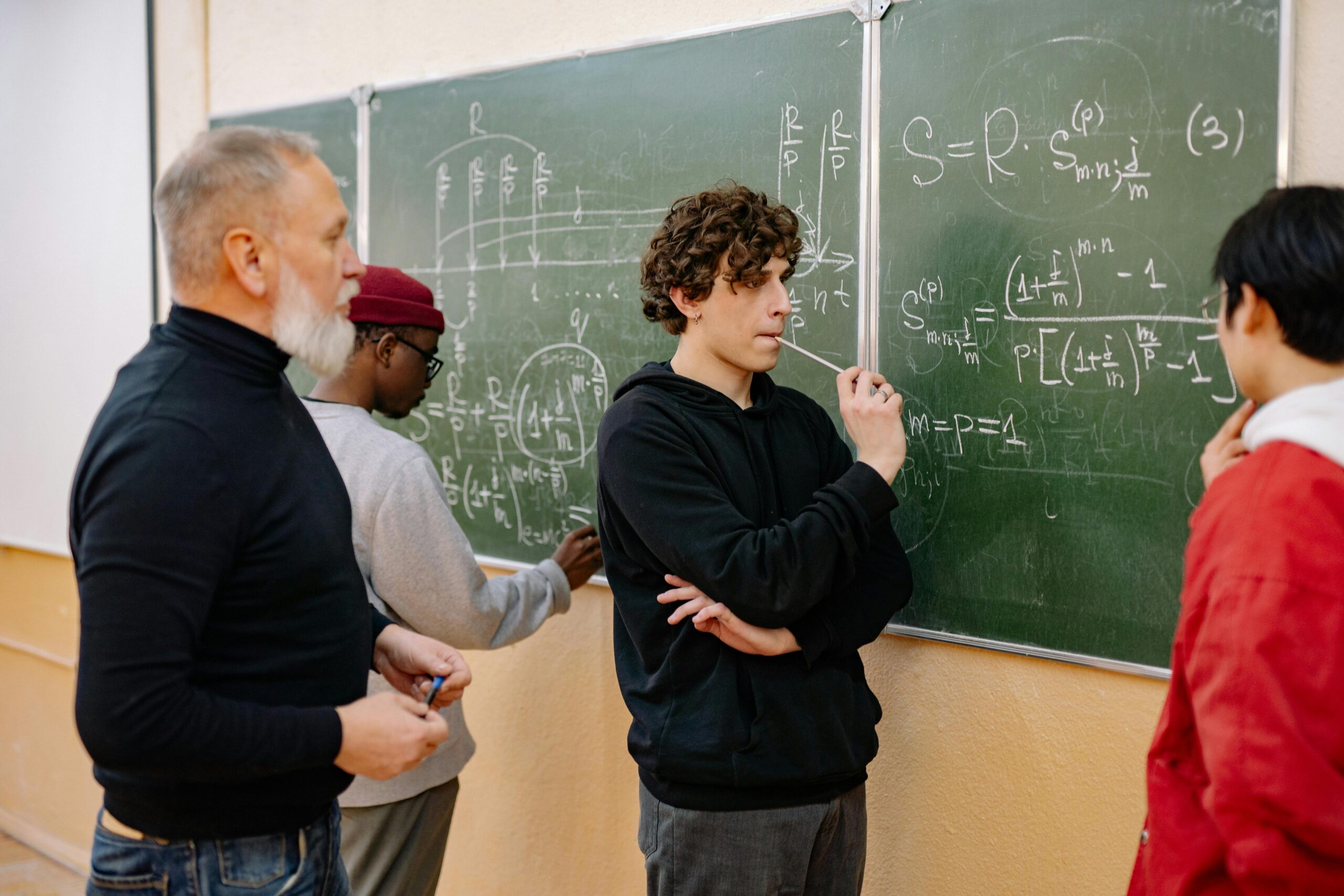Training Programs and Camps Available in Canada for the IMO
Preparing for the International Mathematical Olympiad (IMO) is no small feat. If your child has a knack for numbers and a passion for problem-solving, Ontario offers fantastic training programs and camps to help them shine. These programs are designed to nurture young mathematicians, providing them with the skills and confidence they need to compete at an international level. As a parent, you might be wondering where to start. Let’s explore some of the best opportunities available to your budding math whiz.
Local Math Circles and Clubs
Local math circles and clubs are a great starting point for any young math enthusiast. These groups meet regularly to solve challenging problems and learn new mathematical concepts. They are often led by experienced teachers or university students with a passion for math. Joining a math circle or club can help your child develop critical thinking skills and meet like-minded peers. In Ontario, many schools and community centers host these groups, making them accessible and convenient.
One of the most popular programs is the University of Toronto – Mississauga Math Circle. It offers sessions for students of different ages and skill levels. Here, your child will engage in fun and interactive math activities, all designed to stimulate their interest and improve their problem-solving abilities. Encouraging your child to participate in such circles can significantly boost their confidence and prepare them for more advanced training.
Intensive Training Programs
For students who are serious about competing in the IMO, intensive training programs offer a more focused approach. These programs are often run by universities or specialized math organizations. They provide rigorous training and mentorship from experienced mathematicians and former IMO participants. The Canadian Mathematical Society (CMS) runs several such programs, including the Canadian IMO Training Camp.
The Canadian IMO Training Camp is an invitation-only program for the top-performing students from various math competitions. During the camp, students undergo intensive training sessions, solving complex problems and learning advanced mathematical theories. This camp not only prepares them for the IMO but also helps them build a strong mathematical foundation for their future academic and professional careers.
Summer Math Camps
Summer math camps are another excellent way for your child to immerse themselves in the world of mathematics. These camps combine learning with fun, making math an exciting adventure. They offer a mix of lectures, problem-solving sessions, and recreational activities. Your child will have the opportunity to work with peers who share their passion for math and learn from experienced instructors.
One such camp is the University of Waterloo’s Math Camp. This camp is designed for high school students with a strong interest in math. Over the course of a week, students participate in various math-related activities, including lectures from university professors, problem-solving sessions, and team competitions. The camp environment fosters collaboration and friendship, creating a supportive community where students can thrive.
Online Training Resources
In today’s digital age, online training resources have become invaluable. They offer flexibility and access to a vast array of learning materials from the comfort of your home. Websites like Art of Problem Solving (AoPS) and Khan Academy provide comprehensive math courses, practice problems, and interactive lessons. These platforms are designed to help students of all levels improve their math skills and prepare for competitions like the IMO.
AoPS, in particular, offers specialized courses for students aiming for math competitions. Their courses are taught by experienced instructors, including former Olympians. The online format allows your child to learn at their own pace, revisiting difficult concepts and practicing problems as needed. Additionally, the AoPS community forum provides a space for students to ask questions, share solutions, and connect with other math enthusiasts.
Personalized Tutoring
Sometimes, personalized attention can make a world of difference in a student’s preparation. Hiring a tutor with experience in math competitions can provide tailored guidance and support. Tutors can identify your child’s strengths and weaknesses, helping them focus on areas that need improvement. They can also share valuable tips and strategies for tackling complex problems, boosting your child’s confidence and performance.
Finding a qualified tutor in Ontario is relatively easy, thanks to the many tutoring centers and online platforms available. You can look for tutors who specialize in math competitions or have a background in teaching advanced mathematics. Personalized tutoring can complement other training programs, providing your child with a well-rounded preparation for the IMO.
Encouraging a Growth Mindset
As you explore these training programs and camps, it’s important to encourage a growth mindset in your child. Success in math competitions like the IMO requires persistence, resilience, and a positive attitude. Celebrate your child’s progress, no matter how small, and remind them that learning is a journey. With the right support and opportunities, your child can achieve great things in mathematics.
Participating in these programs can be a transformative experience. Your child will not only improve their math skills but also gain valuable life skills such as critical thinking, problem-solving, and teamwork. These experiences can open doors to scholarships, prestigious university programs, and exciting career opportunities in fields like science, engineering, and technology.
Ontario offers a wealth of resources to help your child prepare for the International Mathematical Olympiad. From local math circles and intensive training programs to summer camps and online resources, there are plenty of options to choose from. By providing your child with these opportunities, you are setting them on a path to success. Encourage their passion for math, support their efforts, and watch as they reach new heights. With dedication and the right guidance, your child could be the next Canadian math champion.

Tips from Past Canadian IMO Participants
Are you looking to help your child prepare for the International Mathematical Olympiad (IMO)? The journey can be both exciting and challenging. But worry not! We’ve gathered valuable tips from past Canadian IMO participants to guide you and your young mathematician. These insights will help you understand what it takes to excel and how to support your child effectively. Let’s dive into some tried-and-true advice straight from the champions themselves!
Practice Makes Perfect
One thing every IMO participant agrees on is the importance of practice. Solving math problems regularly is key to success. Encourage your child to tackle a variety of problems from different sources. Past IMO exams are an excellent resource. They offer a glimpse into the types of questions your child will face. Set aside dedicated time each day for problem-solving. Consistency is crucial, and even short daily sessions can make a big difference.
Alex Song, a record-breaking Canadian IMO medalist, emphasized the value of practice. He suggests starting with easier problems and gradually increasing the difficulty. This approach builds confidence and helps your child develop problem-solving strategies. Remember, it’s not just about finding the right answer but understanding the process. Encourage your child to explain their thought process and reasoning as they solve each problem.
Learn from Mistakes
Mistakes are part of the learning process. Encourage your child to view them as opportunities to improve. When they get a problem wrong, take the time to review it together. Discuss where they went wrong and how they can approach it differently next time. This reflection helps solidify their understanding and prevents similar errors in the future.
Richard Hoshino, a former IMO participant, stresses the importance of learning from mistakes. He advises keeping a journal of errors and reviewing it regularly. This practice helps identify patterns and areas that need improvement. It also shows your child that making mistakes is normal and an essential part of learning.
Stay Curious and Explore
Curiosity is a powerful motivator. Encourage your child to explore beyond the standard curriculum. Many past IMO participants found success by diving into advanced topics on their own. Resources like math books, online courses, and educational videos can spark their interest. Let your child pursue areas they find fascinating, whether it’s number theory, combinatorics, or algebra.
Jacob Tsimerman, an accomplished Canadian IMO participant, recommends embracing curiosity. He suggests exploring topics that aren’t typically covered in school. This exploration can deepen your child’s understanding and keep them engaged. It also exposes them to a broader range of problems, better preparing them for the diverse challenges of the IMO.
Join a Math Community
Being part of a math community can be incredibly beneficial. Joining math clubs, attending math camps, and participating in online forums connects your child with like-minded peers. These communities provide support, inspiration, and a platform to share ideas and solutions. Your child can learn from others, gain different perspectives, and build lasting friendships.
Many past IMO participants highlight the importance of community. They found motivation and encouragement from their peers. Engaging with others who share the same passion can make the preparation journey more enjoyable and less isolating. Look for local math circles, school clubs, and online communities where your child can connect with fellow math enthusiasts.
Focus on Mental Health
Preparing for the IMO can be intense, so it’s essential to balance hard work with relaxation. Encourage your child to take breaks, pursue hobbies, and spend time with friends and family. Mental well-being is crucial for sustained performance and overall happiness. Ensure they get enough sleep, eat well, and engage in physical activities.
Alex Song advises maintaining a healthy balance between study and relaxation. He believes that a well-rested mind is more effective and creative. Remind your child that it’s okay to take breaks and unwind. This balance prevents burnout and keeps them motivated and focused.
Set Realistic Goals
Setting realistic and achievable goals can help your child stay motivated. Break down the preparation process into manageable steps. Celebrate small victories along the way to keep their spirits high. Encourage your child to set specific, measurable goals, such as solving a certain number of problems each week or mastering a particular topic.
Richard Hoshino recommends setting both short-term and long-term goals. Short-term goals provide immediate motivation, while long-term goals keep your child focused on the bigger picture. Track their progress and adjust goals as needed. This structured approach helps your child stay organized and motivated.
Get Professional Guidance
Sometimes, professional guidance can make a significant difference. Consider hiring a tutor with experience in math competitions or enrolling your child in specialized training programs. These experts can provide personalized coaching, identify areas for improvement, and offer valuable insights and strategies.
Jacob Tsimerman suggests seeking mentors who have experience with the IMO. These mentors can share their own experiences, offer advice, and provide moral support. Professional guidance can complement your child’s self-study efforts and give them an edge in their preparation.
Foster a Positive Attitude
A positive attitude can go a long way in overcoming challenges. Encourage your child to stay optimistic, even when faced with difficult problems. Celebrate their efforts and progress, no matter how small. Remind them that every step forward is a step closer to their goal.
Past IMO participants emphasize the power of positivity. They faced numerous challenges but remained focused and hopeful. A positive mindset helps build resilience and determination. Your encouragement and support play a crucial role in fostering this attitude.
Preparing for the International Mathematical Olympiad is a journey filled with hard work, dedication, and excitement. By following these tips from past Canadian IMO participants, you can help your child navigate this path successfully. Practice regularly, learn from mistakes, stay curious, join a math community, focus on mental health, set realistic goals, seek professional guidance, and foster a positive attitude. With your support and their determination, your child can achieve great things and make Canada proud. Let the journey to the IMO be a rewarding and enriching experience for both you and your young mathematician.

Profiles of Top Canadian Math Olympians for the IMO
Are you curious about the bright minds representing Canada at the International Mathematical Olympiad (IMO)? These young mathematicians have achieved incredible feats and brought pride to our country. Let’s dive into the profiles of some top Canadian Math Olympians. Their stories are not only inspiring but also offer valuable insights for parents in Ontario looking to support their budding math enthusiasts.
Alex Song: The Record-Breaking Prodigy
You might have heard of Alex Song, one of Canada’s most celebrated IMO participants. Alex started competing in the IMO at a young age and quickly made a name for himself. He won a total of six medals, including five golds—a record for Canadian participants.
Alex’s journey began with a love for solving puzzles and a passion for mathematics. His dedication and hard work paid off, as he consistently excelled in national and international competitions. Alex’s story shows that with the right support and perseverance, your child can achieve remarkable things.
Alex’s success wasn’t just due to natural talent. He put in countless hours of practice, tackling a wide range of math problems. He also benefited from the guidance of experienced mentors and supportive parents. Encourage your child to embrace challenges and stay curious, just like Alex did.
Richard Hoshino: From IMO to Academia
Richard Hoshino is another shining star in Canada’s IMO history. Competing in the early 1990s, Richard earned a silver medal, showcasing his exceptional problem-solving skills. But his contributions to mathematics didn’t stop there.
After his IMO success, Richard pursued an illustrious academic career. He became a professor, authored several math books, and inspired many students with his innovative teaching methods. Richard’s story is a testament to the long-term benefits of participating in the IMO. It can open doors to academic and professional opportunities.
As a parent, you can take a cue from Richard’s journey. Support your child’s interests in math and provide them with resources to explore advanced topics. Who knows? Your child might follow in Richard’s footsteps and contribute significantly to the world of mathematics.
Jacob Tsimerman: A Champion of Number Theory
Jacob Tsimerman, a former IMO gold medalist, is another example of Canadian excellence. Competing in the early 2000s, Jacob’s performance at the IMO was stellar. His success continued as he pursued advanced studies in mathematics.
Jacob’s research in number theory has gained international recognition. He has published numerous papers and received prestigious awards for his work. His journey from an IMO participant to a renowned mathematician highlights the impact of early exposure to competitive math.
You can help your child develop a passion for math by encouraging exploration and curiosity. Jacob’s story shows that the skills and knowledge gained through the IMO can lead to a successful academic career. Provide your child with opportunities to engage in math competitions and advanced studies.
Emily Riehl: A Pioneer in Category Theory
Emily Riehl’s success at the IMO and beyond is a story of pioneering spirit. Competing in the early 2000s, Emily earned multiple medals and showcased her exceptional talent. She went on to become a leading researcher in category theory, a branch of mathematics with broad applications.
Emily’s journey highlights the importance of pursuing one’s passion. She followed her interest in advanced mathematical concepts and made significant contributions to her field. Her success at the IMO was just the beginning of a remarkable career.
As a parent, you can support your child’s interests and encourage them to explore different areas of mathematics. Emily’s story shows that passion and dedication can lead to groundbreaking achievements.
Supporting Your Child’s Mathematical Journey
The stories of these top Canadian Math Olympians offer valuable lessons for parents. Each of these champions started with a love for mathematics and received support from their families and mentors. Encouraging your child’s interest in math, providing resources, and fostering a positive learning environment can make a significant difference.
Join local math clubs, participate in competitions, and connect with other parents and educators. Celebrate your child’s achievements, no matter how small, and keep them motivated. The journey to the IMO is challenging, but with the right support, your child can achieve great things.
Final Thoughts
Canada’s top Math Olympians have set a high standard for excellence in mathematics. Their stories are not just about winning medals but about the dedication, perseverance, and passion that drive success. As a parent, you have the power to support and inspire your child on their mathematical journey. Embrace the lessons from these champions and help your child reach for the stars. With your support, they might just become the next Canadian Math Olympian!
Explore Canada’s proud history and achievements in the International Mathematical Olympiad. Learn about our students’ successes, preparation tips, and how to support young math enthusiasts aiming for the IMO. Click here!
Want to learn about Science competitions in Ontario? Check this link!



